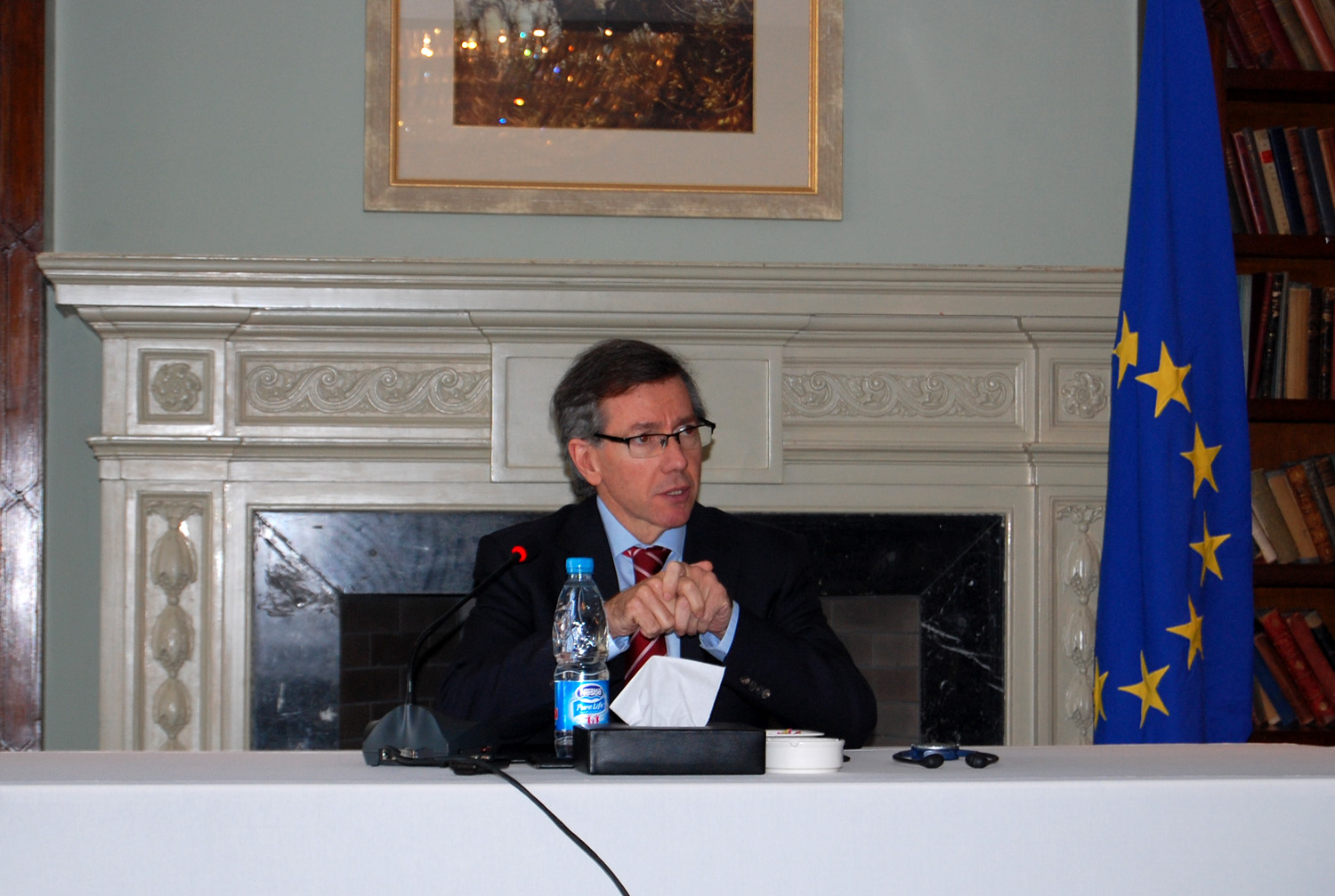
(AFP PHOTO / KHALED DESOUKI)
The Ministry of Interior denied on Wednesday accusations that it had released a group of female activists into the desert after their arrest in protests outside the Shura Council on Tuesday afternoon.
According to Ministry of Interior spokesman General Hany Abdel Latif, 24 men and 16 women were arrested during the ministry’s dispersal of the demonstration. “The women were released from the police station after an order from the Minister of Interior Mohamed Ibrahim,” he said.
The female detainees included several high-profile activists, including Mona Seif, Rasha Azab, Nazly Hussein and May Saad, daughter of TV presenter Mahmoud Saad. The women had refused to be released, fearing for the safety of the male detainees.
“They forced us into a police truck and started to hit us,” said Mona Seif. “They drove us to different locations and then left us in the desert near the road to Upper Egypt, where cars came to pick us up.”
The activists said they had concealed a phone with them in the police truck, which helped them contact their families and let them know their location to pick them up. Their release in the desert, Seif said, was meant to punish them for not leaving when released at the police station.
Initially after their arrest, all protesters of both genders had been taken to New Cairo’s First Police Station and only 12 were taken to New Cairo’s Third Precinct, according to Lawyer Amr Hassan from the Association of Freedom of Thought and Expression (AFTE).
Family and friends of the arrested protesters, along with lawyers, journalists and rights activists gathered outside the First Precinct, where most of the detainees were held. The officers allowed supplies of food, and clothes to be passed to the detainees, whose clothes were wet from the water cannons used during the protest.
“The lawyers were prevented from seeing the arrested protesters until they were questioned by the prosecutor at around 12.30am,” Hassan said. “Lawyers, journalists and famous activists were then released.”
Malek Adly, a lawyer from the Egyptian Center for Economic and Social Rights, harshly criticised the prosecutor general for failing to release all the detainees. “The prosecutor general has proved once again that it has no system and uses arbitrary detention,” he said. “There is no law in the entire world that would allow police forces to use any sort of violence against peaceful protesters, nor wear plainclothes and arrest activists, nor wear masks to cover their personnel’s identities.”
Activists and prominent public figures gathered outside the First Precinct, including 6 April Youth Movement founder Ahmed Maher and Tamarod founder Hassan Shahine, whose presence stirred controversy and a small fight, leading to the advancement of the police barricade surrounding the police station.
The Prosecutor General investigated the 24 male detainees who remained after the rest of the arrested protesters were released, including the 12 protesters in the Third Police Precinct.
According to an official statement released by the prosecutor general’s office on Wednesday, the 24 detainees had their detention extended for four more days under accusations of blocking roads, illegal assembly, protesting without a permit, the acquisition of melee weapons during a protest, and attacking and injuring a public servant and stealing his personal wireless device.
The statement added that the police will pursue the rest of the organisers and participants of “the unlawful protest.” The unlawful nature of the protest comes in light of a new Protest Law requiring all demonstrations to obtain prior approval from the relevant government authorities.
The Tuesday demonstrations, organised by the No Military Trials for Civilians group, were meant to protest an article in the new constitution allowing military trials against Egyptian civilians.


